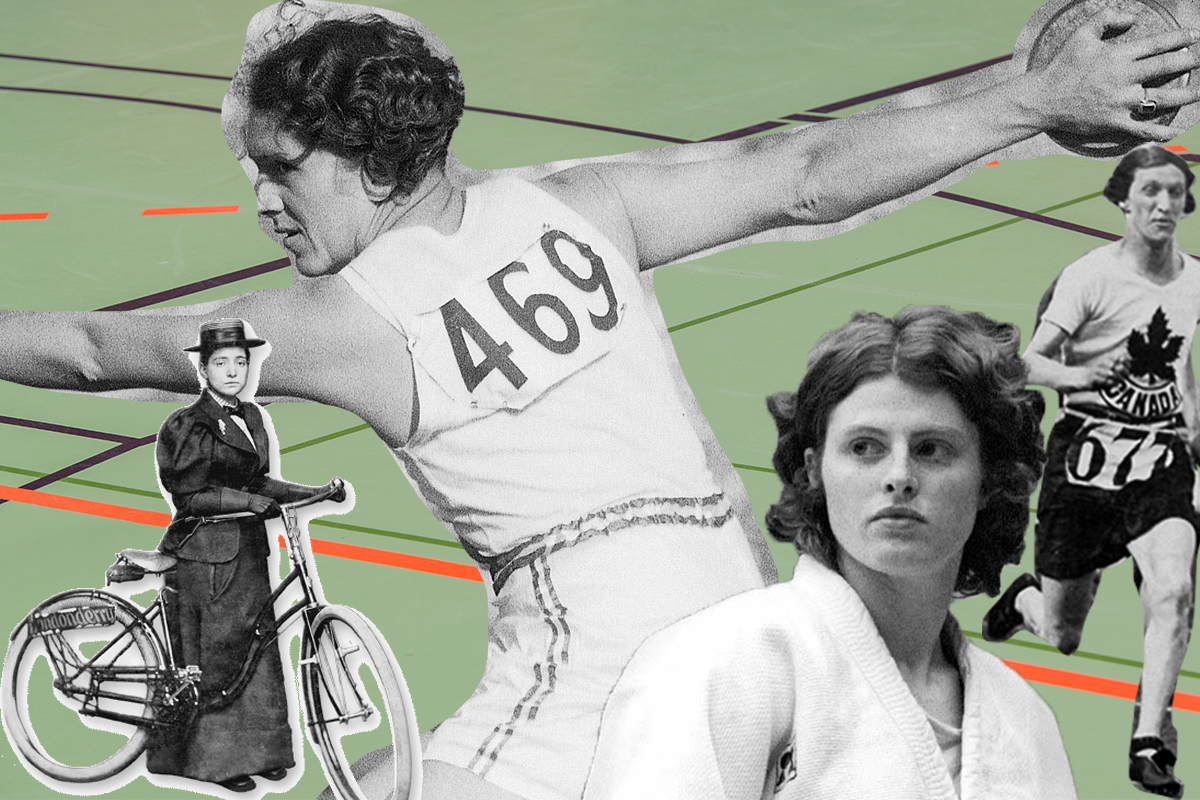“I’ll have you know the first two points scored in the NBA was a Jew,” says Adam Sandler in the film Uncut Gems, explaining the important role Jewish people have played in the progression of American pastimes. While often less recognized than their male peers, female Jewish athletes have shaped modern sports, proving they are just as talented as men and advocating for women’s involvement in competitions at all levels.
Although we’ll have to wait until 2021 for the Tokyo Olympics, why not in the meantime root for these seven Jewish sportswomen?
1. Annie “Londonderry” Cohen Kopchovsky (1870-1947)
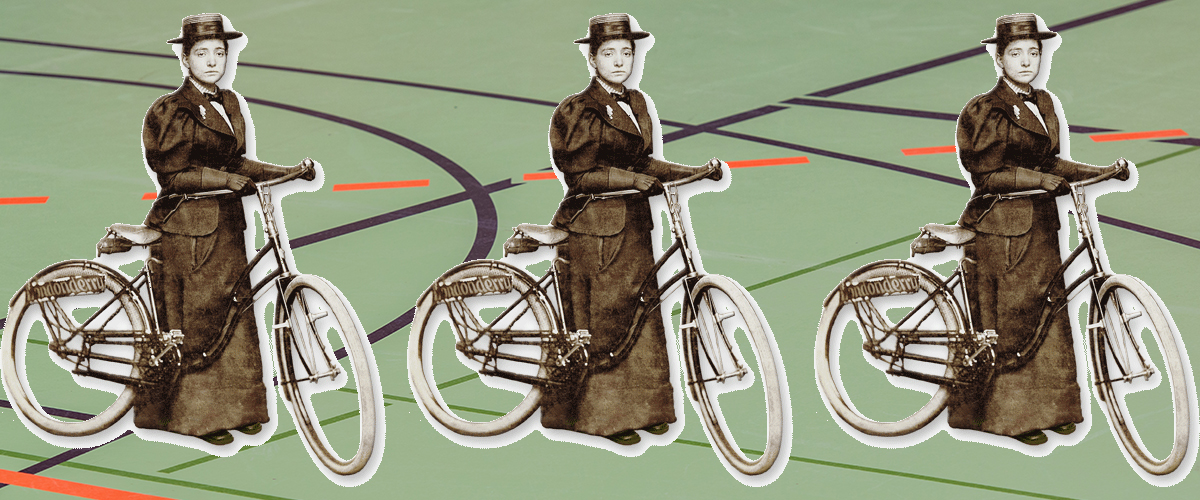
A Latvian immigrant who moved to the United States, Annie Londonderry Cohen Kopchovsky was the first woman to cycle around the world. Both of her parents died when Kopchovksy was only a teenager. She married a peddler and had three children, but left her family to embark on her trip. Supposedly, she was motivated to settle a bet between two Boston businessmen about whether women were as physically strong as men. During her highly publicized voyage, she gained notoriety, recounting tall tales, including hunting for Indian Bengal tigers and seeing the battlefield during the Sino-Japanese War.
She also regularly lied about her profession, claiming at times to be a lawyer, a newspaper founder, and a medical student. Further, she often traveled by train in lieu of biking everywhere. But her journey was still an impressive undertaking: She used an over 40-pound bike, rode in dresses, and even completed the last leg with a broken arm. Although she was largely forgotten, in 2007 Peter Zheutlin, whose great-grandfather was Kopchovsky’s brother, published the book Around the World on Two Wheels: Annie Londonderry’s Extraordinary Ride.
2. Lillian Copeland (1904-1964)
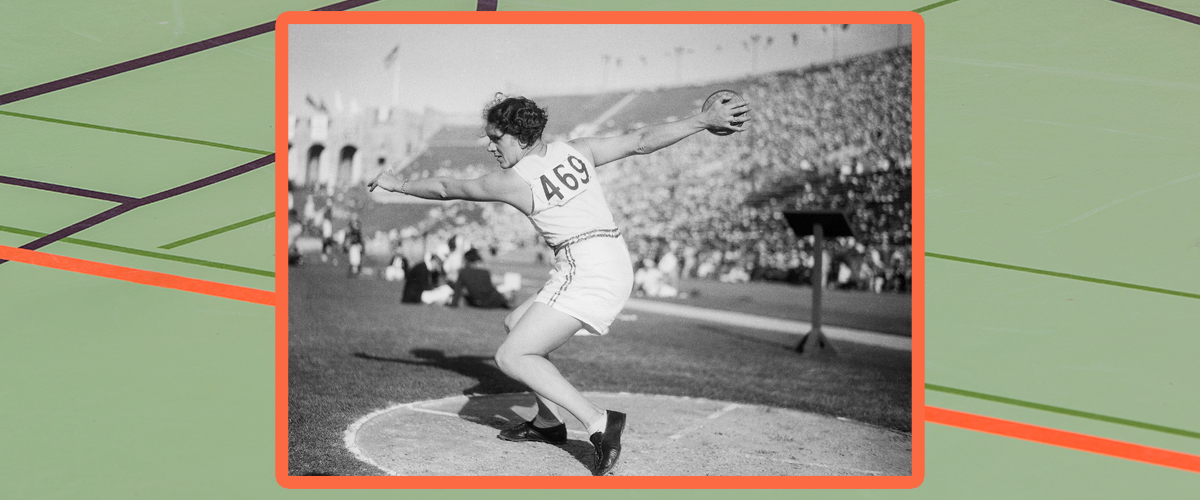
Track and field athlete Lillian Copeland has been described as the most successful female discus thrower in American history. Copeland grew up in Los Angeles and won every track event she entered while studying at the University of Southern California. She won the national championship for shot put four times and switched to discus throw to compete in the 1928 summer Olympics, the first to include women’s track and field.
Even though she shifted focus to pursue a law degree, she returned to the 1932 Olympics in Los Angeles, where she won the gold medal for discus throw, setting a new world record. But this would prove to be her last Olympics. She chose to boycott the 1936 games in Germany because of Hitler’s refusal to allow Jews to compete. She instead devoted herself to law enforcement, working for the Los Angeles County Sheriff’s Department.
3. Fanny “Bobbie” Rosenfeld (1904-1969)
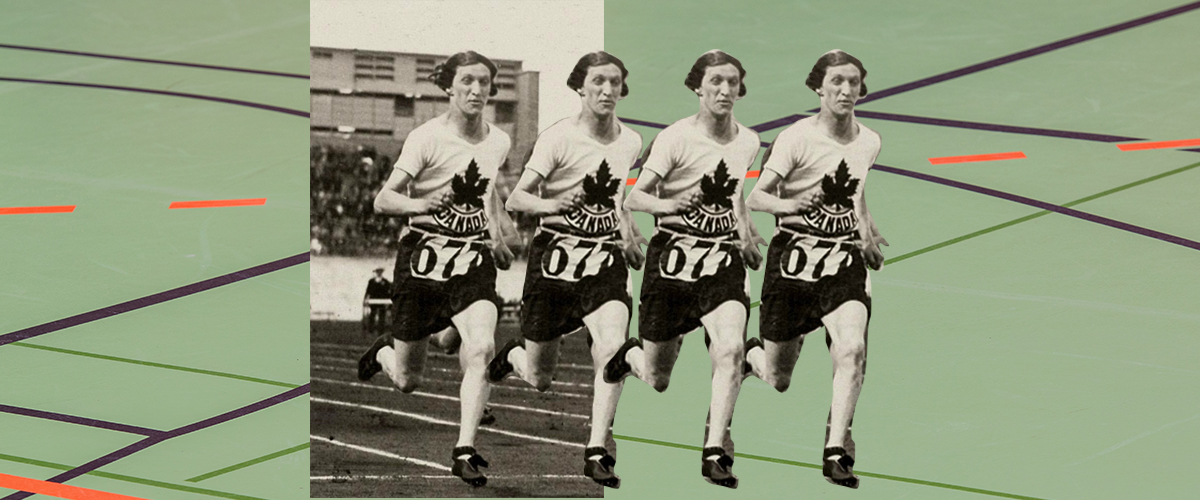
Fanny “Bobbie” Rosenfeld was born in what’s now Ukraine and immigrated to Ontario, where she excelled not only in relays but other sports including tennis, basketball, and lacrosse. She received the “Bobbie” nickname for her “bobbed” haircut. After moving to Toronto, she worked in a chocolate factory while competing in track and field championships and on the Young Women’s Hebrew Association’s basketball team.
In the 1920s, she became one of Canada’s most renowned hockey players. She also competed in the 1928 Olympic Games, setting track and field records, including a gold medal win for the 4×100 meter relay race. Although she was forced to stop competing in 1933 because of severe arthritis, she continued her dedication to sports, coaching track and field and serving as a sports columnist for the Globe and Mail in Toronto. For her accomplishments, she was named the “Canadian woman athlete of the half-century.”
4. Ilona Elek (1907-1988)
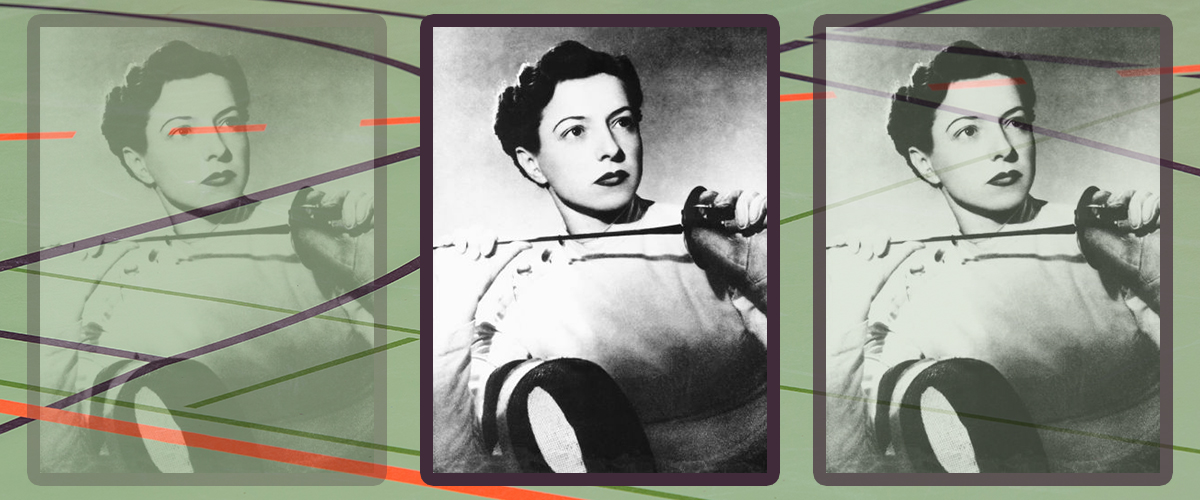
Hungarian fencer Ilona Elek is hailed as one of the best fencers ever, winning more titles in the sport than any other woman during her time. Born in Budapest, Elek competed in fencing with her sister Margit. Although at 29 she was considered a mature athlete, Ilona Elek became the first woman from Hungary to win an Olympic gold during the 1936 games.
During the war, Jews were prohibited from competing in fencing competitions as well as other sports. Amazingly, in 1948 at age 41, she successfully defended her title. It was the fifth Olympics in a row during which a Jewish woman won the gold metal in foil. She went on to win the silver metal at the 1952 Olympics in Helsinki. She then retired and worked for a trading company while also serving as the honorary president for the International Fencing Federation.
5. Gretel Bergmann (1914-2017)
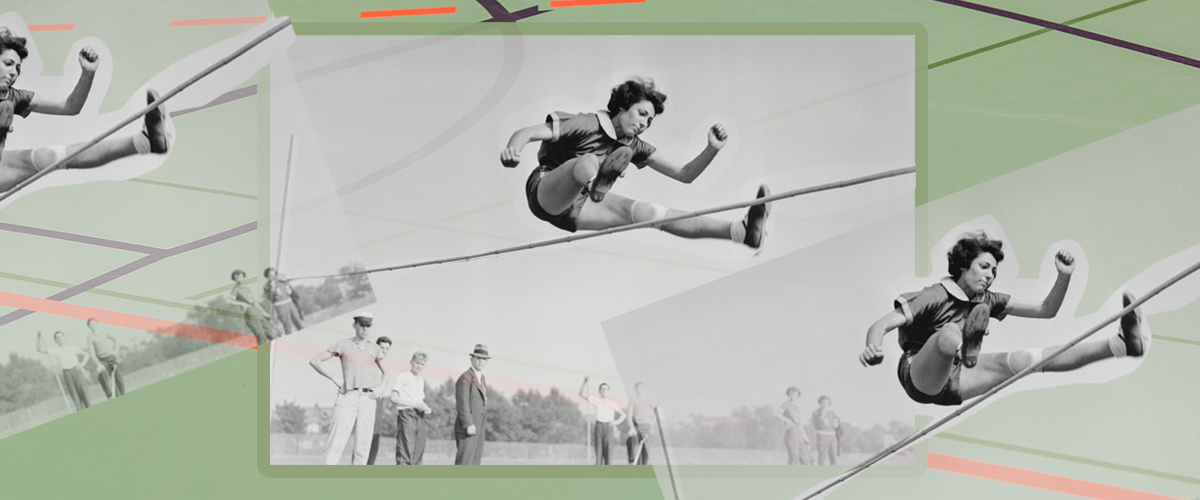
This German track and field high jumper had her Olympic dreams crushed when she was prevented from taking part in the 1936 Olympics, but she set records around the world. Having already been expelled from her training club in Laupheim because of her religion, Bergmann moved to London. However, she was forced to return to Germany and to prepare for the 1936 Olympics in a Nazi effort to counter claims of anti-Semitism.
Despite record-breaking jumps during practice, she was not allowed to compete, with coaches claiming she had “underperformed.” She immigrated to the United States, where she won the U.S. women’s championships for shot put and high jump. The studio from which she was barred was renamed in her honor in 1999. In 2014, one of the streets in the Olympic Park Berlin was named “Gretel-Bergmann-Weg.”
6. Thelma Eisen (1922-2014)
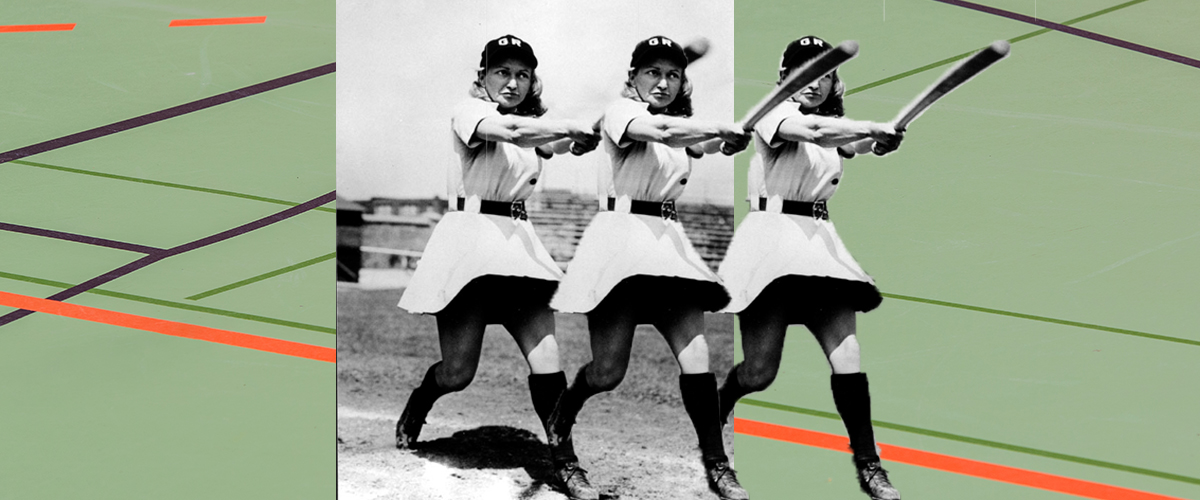
Thelma Eisen was an outfielder on the All-American Girls Professional Baseball League (AAGPBL), which inspired the 1992 film A League of Their Own. Eisen grew up in an Orthodox Jewish family in Los Angeles and began playing softball at a young age. She began a professional football career before the Los Angeles city council banned tackle football for women. She was scouted by Bill Allington to join a new league of female baseball players to fill a gap in professional sports while men were fighting in World War II.
She played on the Milwaukee Chicks, which won the 1944 Championship Title, although they dealt with limited finances and fan support as well as skepticism in the media. She was part of a variety of teams before becoming the league’s first female manager. In 1947, she completed spring training in Havana, Cuba, which was highly publicized, and also toured Central and South America. After nine seasons in the league, she left to play softball and serve on the board of directors for AAGPBL, working to highlight women’s contributions to baseball.
7. Rena “Rusty” Kanokogi (1935-2009)
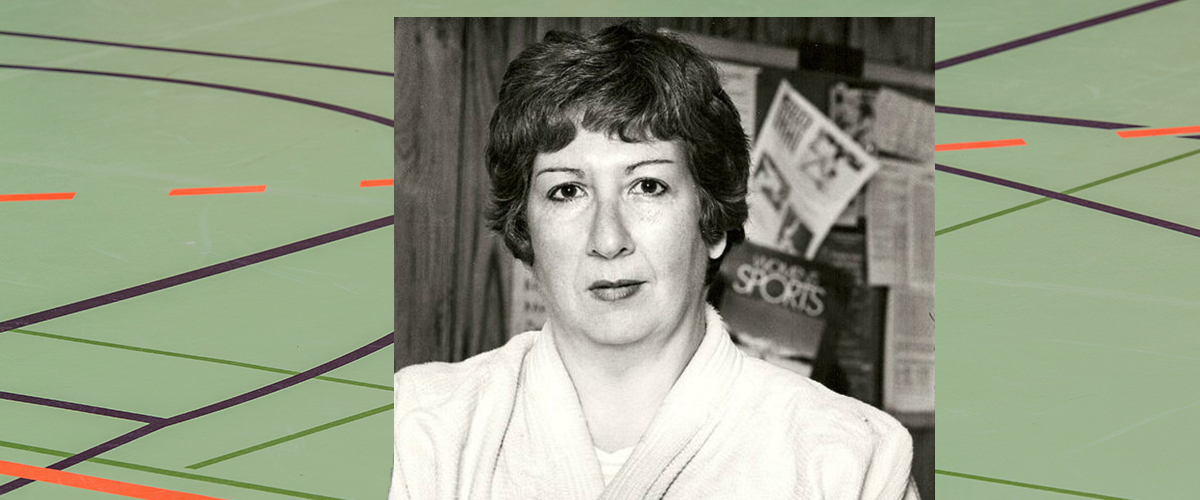
From Brooklyn, Rena “Rusty” Kanokogi was an accomplished judo competitor who pioneered the sport at the Olympics. She began working at age 7, befriending the range of characters living around Coney Island. She began using her brother’s weights and disguised herself as a man to compete in a YMCA judo tournament, although she was stripped of her medal after her gender was revealed.
With few opportunities in the U.S., she moved to Tokyo to study at the Kodokan, the headquarters of the judo community. She became the first woman to train with the men’s group. After returning to the U.S. she personally financed the first women’s judo world championship and threatened to sue the International Olympic Committee if they refused to allow women’s judo. She continued to train Olympic athletes and was awarded the Order of the Rising Sun, one of the highest civilian honors in Japan.
Image of the court via Volker Schlichting / EyeEm/Getty Images; of Annie Londonderry via AnnieLondonderry.com; of Lillian Copeland and Gretel Bergmann via Bettmann / Contributor/Getty Images; of Bobbie Rosenfeld via Library and Archives Canada/Wikimedia Commons; of Ilona Elek via Wikimedia Commons; Tibby Eisen via American Jewish Historical Society Photography Collection/Wikimedia; Rena Kanokogi via Pinterest.
